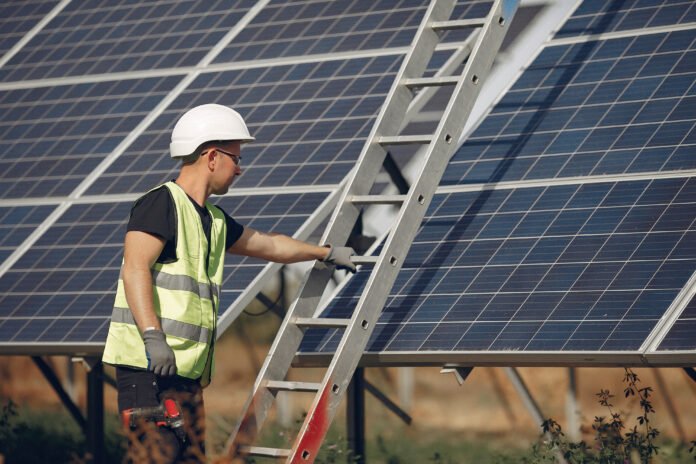Introduction
In a world where sustainable energy solutions are becoming increasingly critical, solar power stands out as a beacon of hope. As traditional energy sources continue to deplete and environmental concerns loom large, the adoption of solar energy saving systems has emerged as a viable solution. This article, brought to you by Integratesun, delves deep into the realm of solar energy saving systems, exploring their significance, benefits, and diverse applications.
Understanding Solar Energy
The Basics of Solar Energy
Solar energy is derived from the sun’s radiation, which can be harnessed through various technologies to generate electricity or heat. The process begins with the capture of sunlight using photovoltaic (PV) panels or solar thermal collectors. These devices convert solar energy into usable forms, such as electricity or thermal energy, through the photovoltaic effect or thermal absorption.
Key Components of Solar Energy Systems
Solar energy systems consist of several essential components:
- Solar Panels: Photovoltaic panels, typically mounted on rooftops or open areas, capture sunlight and convert it into electricity.
- Inverters: These devices convert the direct current (DC) electricity generated by solar panels into alternating current (AC) electricity, which is compatible with standard household appliances and the electricity grid.
- Mounting Structures: Mounting structures provide support for solar panels and ensure optimal positioning to maximize sunlight exposure.
- Battery Storage (Optional): Battery storage systems store excess electricity generated during the day for use during periods of low sunlight or at night, enhancing energy self-sufficiency and resilience.
- Monitoring Systems: Monitoring systems track the performance of solar energy systems, providing real-time data on energy production, consumption, and efficiency.
Benefits of Solar Energy Saving Systems
Environmental Sustainability
One of the most significant advantages of solar energy is its minimal environmental impact. Unlike fossil fuels, solar power generation produces no greenhouse gas emissions or air pollutants, helping mitigate climate change and reduce air pollution. By harnessing the sun’s abundant and renewable energy, solar energy systems contribute to a cleaner, greener future for generations to come.
Cost Savings
Solar energy can significantly reduce electricity bills over the long term, offering substantial cost savings for homeowners, businesses, and communities. While the initial investment in solar energy systems may seem significant, the long-term savings on energy bills often outweigh the upfront costs. Additionally, government incentives, such as tax credits and rebates, can further offset the initial investment, making solar power more accessible and affordable.
Energy Independence
Solar energy systems promote energy independence by reducing reliance on external energy sources, such as fossil fuels or centralized power grids. By generating electricity onsite from freely available sunlight, homeowners and businesses can become more self-sufficient and resilient to power outages or supply disruptions. Battery storage systems further enhance energy independence by providing backup power during emergencies or grid outages.
Applications of Solar Energy Saving Systems
Residential*
In the residential sector, residential solar panels systems offer homeowners a sustainable and cost-effective alternative to traditional grid electricity. Rooftop solar installations can power homes, reducing or eliminating dependence on utility companies and lowering electricity bills. With advancements in solar technology and financing options, solar energy has become increasingly accessible to homeowners of all income levels.
Commercial and Industrial*
Commercial and industrial facilities can also benefit from solar energy integration. Large-scale solar installations can offset energy costs for businesses, manufacturing plants, and institutions, helping them reduce operating expenses and improve profitability. Additionally, businesses can enhance their corporate social responsibility (CSR) efforts by adopting renewable energy solutions and reducing their carbon footprint.
Agricultural and Rural*
In rural and agricultural settings, solar energy systems provide a reliable and sustainable source of power for off-grid applications. Solar-powered water pumps, irrigation systems, and agricultural equipment enable farmers to increase productivity and efficiency while reducing reliance on fossil fuels. Moreover, solar energy solutions can enhance energy access and economic development in remote areas with limited grid infrastructure.
Conclusion
Solar energy saving systems represent a paradigm shift in the way we generate, consume, and think about energy. With their environmental benefits, cost savings, and diverse applications, solar power solutions offer a path towards a cleaner, more sustainable future. As a leading advocate for solar energy innovation, Integratesun remains committed to empowering individuals, businesses, and communities to harness the boundless power of the sun. Join us in embracing solar energy and paving the way towards a brighter tomorrow.













